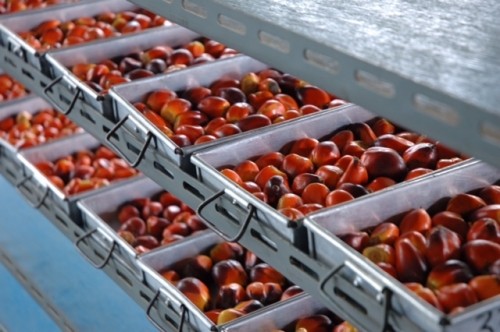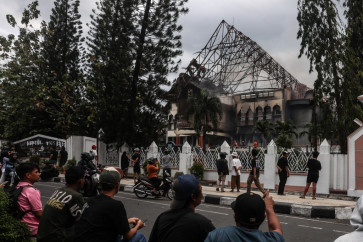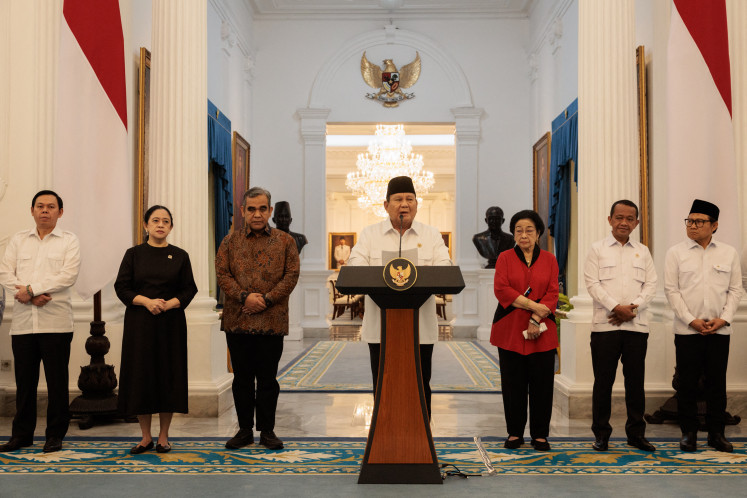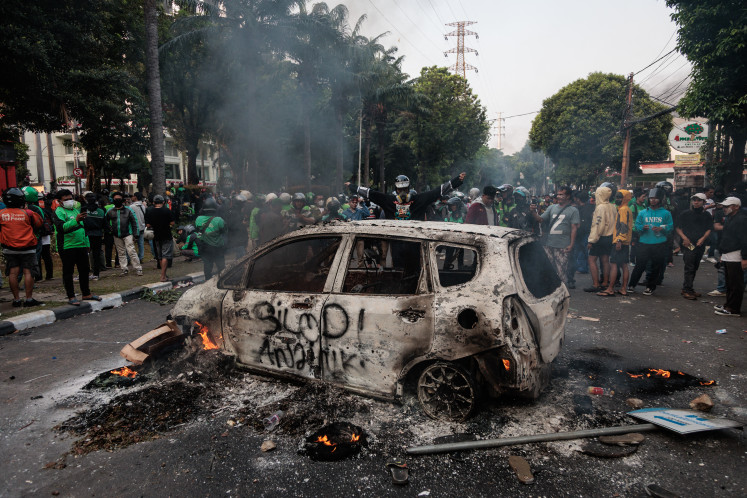Popular Reads
Top Results
Can't find what you're looking for?
View all search resultsPopular Reads
Top Results
Can't find what you're looking for?
View all search resultsBiodiesel on high demand as Indonesia turns to cleaner fuel
Change text size
Gift Premium Articles
to Anyone
L
ocal palm oil producers predict the domestic use of biodiesel will increase by 30 percent to 40 percent in 2017 following the government’s decision to impose the 20 percent biodiesel blending (B20) policy to non-subsidized diesel fuel starting late last year.
“Domestic consumption for biodiesel will increase considering the wider implementation of the B20 policy,” said Indonesian Palm Oil Association (Gapki) official Muryanto Amin recently.
(Read also: Producers struggle to meet biodiesel mix)
Indonesia started implementing the B20 policy in early 2016 for the transportation and industry sectors, while power plant sectors were obliged to blend 30 percent of biodiesel (B30) at the same time.
In November, the government began stipulating the implementation of the program to all gas stations in the country, including state-owned and private stations. Otherwise, each station would be charged Rp 6,000 (45 US cents) for each liter of non-blended diesel fuel sold.
As a result, Indonesia was able to consume 2.7 million kiloliters of biodiesel domestically throughout the year, 91 percent of which was blended with subsidized diesel fuel and the rest blended with non-subsidized fuel. The figure fell slightly from the original target of 2.9 million kiloliters.
This year, the government aims to increase the biodiesel consumption target to 4.6 million kiloliters with 2.5 million kiloliters of which are expected to be blended to make subsidized diesel fuel and 2.1 million kiloliters for the non-subsidized fuel.
Biofuel Producers Association (Aprobi) has even predicted that the domestic use of biodiesel could reach a maximum of 6 million kiloliters this year, about a fifth of total anticipated diesel fuel consumption.
Meanwhile, the Indonesian Oil Palm Estate Fund (BPDP-KS) has allocated Rp 9.6 trillion to further support the implementation of the B20 policy. The figure could fall slightly from last year’s allocation of Rp 10.6 trillion as the average crude oil and crude palm oil (CPO) prices are expected to stand at around $50 to $60 dollar per barrel and $650 to $750 per ton, respectively, this year.
“To meet the target, the government needs to boost the country’s downstream sector for palm oil, particularly by encouraging state firms to develop their own processing plants to produce soaps or cosmetics, for instances,” Muryanto said.
“At the moment, state firms have yet to process such downstream products.”
Last year, Indonesia saw a 22 percent annual increase in exports of processed palm oil products, such as refined, bleached and deodorized (RBD) palm olein and RBD palm stearin. At that time, downstream products accounted for 75.6 percent of the country’s total export volume for palm oil products.
According to the Industry Ministry, the palm oil industry contributes about $20 billion annually to the country’s foreign exchange reserves, while non-tax revenue (PNBP) from the sector reaches Rp 12 trillion a year.
“In our mid-term plan, we want to prioritize efforts to boost investment in the palm oil processing industry to anticipate the growing domestic production that will need 40 million tons of CPO by 2020,” Industry Minister Airlangga Hartarto said on Thursday.
“In the upstream sector, we also expect to boost the replanting program to increase productivity of all smallholders.”










